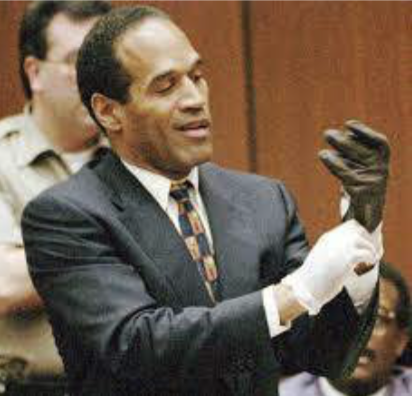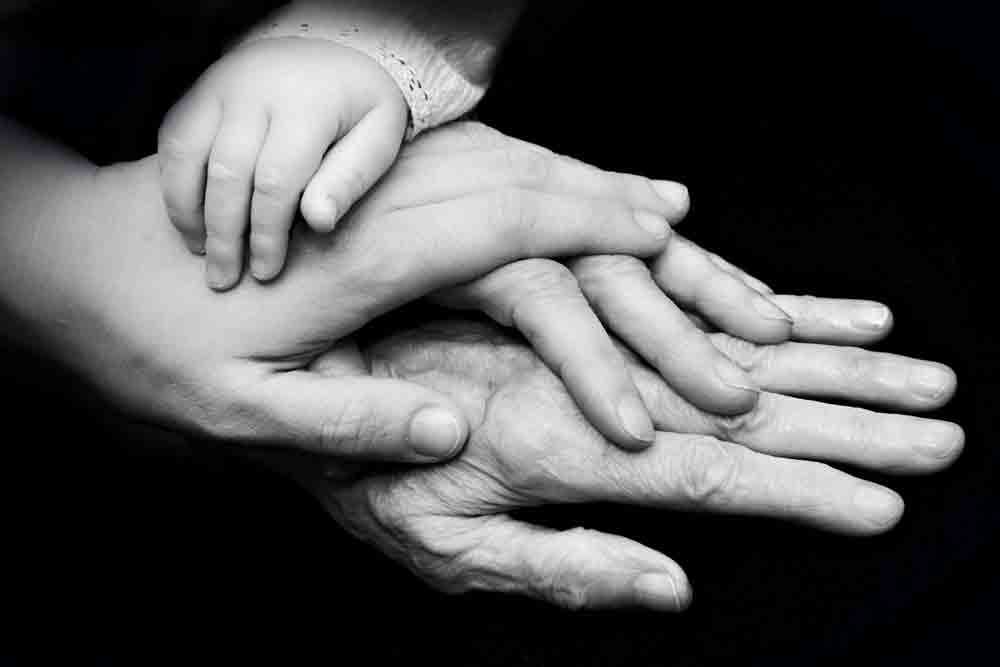(Joh. 19:23) En toe die soldate Jesus gekruisig het, neem hulle sy klere en maak vier dele, vir elke soldaat ’n deel en die onderkleed; maar die onderkleed was sonder naat, van bo af in een stuk geweef.
Definisie van naatloos: Ons praat van ’n roman se naatlose storielyn. Of naatlose, vry vloeiende optrede; ’n naatlose uitvoering. Glad, aaneenlopend, eenvormig in kwaliteit: ’n naatlose samevoeging van kuns en vermaak. Naatloos – volkome konsekwent en samehangend; “die roman se naatlose plot”: samehangend, konsekwent, logies, georden – gekenmerk deur ’n ordelike, logiese en esteties konsekwente verband tussen dele; “’n samehangende argument.”
Wat estetika (skoonheidsleer) betref, lyk dit asof naatloosheid dui op skoonheid, eenvoud en verfyndheid. ’n Persoon wat ’n lewe in Christus lewe, leef ’n naatlose lewe (Joh. 15:1-15). Jesus se onderkleed dui op hierdie soort lewe! “Laat U Koninkryk kom en U wil geskied” sê dat ons gewillig is om Sy wêreld te weerspieël (Matt. 6:10). ’n Naatlose vloei tussen hemel en aarde.
Die onderkleed is ’n vervulling van Psalm 22:19. ’n Mens se onderkleed is jou eerste laag klere – teen jou vel. Kledingstukke wat heeltemal sonder nate is, soos die een wat Jesus gedra het, was uniek aan Palestina. Dit is op regopstaande weeframe geweef waar twee stelle vertikale skeringgaring gebruik is, een aan die voor- en een aan die agterkant van ’n dwarshout. Die wewer het sy weefspoel wat die horisontale weefdraad bevat van die voorkant na die agterkant beweeg en so ’n silindriese stuk materiaal geweef. ’n Naatlose kleed was waarskynlik ’n skaars besitting en vir die soldate iets wat hulle begeer het.
Die feit dat die kledingstuk genoem word, beteken dat Jesus as hoëpriester opgetree het. Die hoëpriester het tydens die Pasga so ’n kleed gedra. Om die waarheid te sê, die priester mag nie sonder die kleed opgetree het nie (Eseg. 44:19). Linne-hoofversiersels moet op hulle hoof wees en linnebroeke moet aan hulle heupe wees; hulle mag hul nie gord met iets wat laat sweet nie (Eseg. 44:18).
’n NAATLOSE LEWE IS EEN WAAR:
- Ons gedagtes, woorde en optrede in lyn is – (Matt. 6:21-22)
- Daar geen afhokking, kognitiewe dissonansie, kompartemente, begin-en-stop-geestelikheid is nie. Al die dele pas knus in by mekaar en daar is geen wedywering en gestoei vir jou aandag nie. Om sout en lig te wees, is naatlose energie (Matt. 5:13-16).
- Daar is geen begin en einde nie, geen binne en buite nie. Alles beweeg op ’n kontinuum.
Die geskenk van regverdigheid maak dit vir ons moontlik om deurentyd vanuit Sy geregtigheid te lewe . . . daarom begin ons altyd in Hom (Matt. 6:33). Sien Alan Platt se boek: Not do, but done.
Jesus het skynheilige mense gehaat. Hy het geen ander sonde of foute in sulke sterk taal aangespreek nie. Jesus waarsku: Maar pas op vir die vals profete wat in skaapsklere na julle toe kom en van binne roofsugtige wolwe is (Matt. 7:15). Hy sê sulke mense is soos gewitte [witgepleisterde] grafte wat van buite wel fraai lyk, maar van binne vol doodsbeendere en allerhande onreinheid is (Matt. 23:27). Jesus het die Fariseërs veroordeel omdat hulle gesê en nie gedoen het nie: “. . . want julle gee tiendes van kruisement en anys en koljander en die swaarste van die wet laat julle ná: die reg en die barmhartigheid en die trou. Hierdie dinge behoort julle te doen sonder om die ander na te laat” (Matt. 23:23). Net soos baie ander vandag, het die Fariseërs ’n kolletjie-uitleg gebruik van die Skrifte – hulle het net kolle (dele) van die Bybel geglo. Hulle het nougeset hulle “kruisement, anys en koljander” na die tempel se stoorkamer gebring, maar in hulle privaat lewe het hulle regverdigheid, genade en geloof geïgnoreer.
Skynheiliges is daarvoor bekend dat hulle lewens in kompartemente verdeel is. Ons moet besef dat, as iemand nie orals ’n Christen is nie, is hy nêrens ’n Christen nie. Die Bybel maak dit baie duidelik: Of julle dan eet of drink of enige iets doen, doen alles tot verheerliking van God (1 Kor. 10:31). En wat julle ook al doen in woord of in daad, doen alles in die Naam van die Here Jesus en dank God die Vader deur Hom (Kol. 3:17). Laat julle lig so skyn voor die mense, dat hulle julle goeie werke kan sien en julle Vader wat in die hemele is, verheerlik (Matt. 5:16). . . . sodat julle onberispelik en opreg kan wees, kinders van God sonder gebrek te midde van ’n krom en verdraaide geslag onder wie julle skyn soos ligte in die wêreld . . . (Fil. 2:15). Ken Hom in al jou weë, dan sal Hy jou paaie gelykmaak (Spr. 3:6).
By Harvester het ons ’n naam vir hierdie soort Jesus-gesentreerde Christologiese leefwyse: “’n God-is-binne-gerigtheid” of “natuurlik bonatuurlik”.
Ons het met verloop van tyd vir God toegelaat om die grense en mure, wat ons rondom ons skande opgerig het om dit te bedek, af te breek. Ons streef daarna om eg, geloofwaardig en eerlik te wees, selfs weerloos. Ons weerstaan die begeerte om voor te gee en met vertoon in die vlees op te tree (Gal 6:12). Wanneer ons in Sy rus lewe, beteken dit ons hoef nie meer te sukkel, te werk of ons in te span om heilig te word nie. Heiligheid is ’n uitvloeisel van Sy blywende rus en vreugde. Jy beweeg teen ’n gemaklike, natuurlike pas – sonder haas. Jy hanteer die dinge in jou lewe voordat dit ’n krisis of langdurige irritasie word. Elke oomblik tel: “Sola Deo Gloria.”
’n Naatlose lewe is meer besorg oor die teenswoordige ervaring tydens die reis as oor die bestemming. Vandag is belangrik, maar ek is steeds bewus van die missie en bestemming. Jy het ’n wye uitkyk op jou lewe, ’n bewustheid van die pad waarop jy is. ’n Skynbare teenstrydigheid: die Koninkryk nou, maar wat nog kom. In plaas daarvan om te bid en te glo dat dit nog moet kom (Matt. 6:10), is ons nou en hier God se Koninkryk. (Matt. 4:17) Ons kan inderwaarheid sê dat, soos Christus, God se Koninkryk (teenwoordigheid en regering) naby is, want Hy is in ons! (Matt. 10:7-8; Luk. 10:9, 11) Die probleem van God se huidige teenoor toekomstige Koninkryk word opgelos wanneer ons eenvoudig die Gees gehoorsaam (Rom. 8:14). Hy beheer watter deel van Sy Koninkryk Hy op ’n gegewe tyd en plek aan ons wil openbaar.
Dan McCollam verwys na nog ’n vorm wat die teenoorgestelde van ’n naatlose lewe is en hy noem dit ’n anakronistiese leefwyse. ’n Anakronisme (uit Grieks ἀνά ana, “teen” en χρόνος khronos, “tyd”) is ’n kronologiese teenstrydigheid in ’n sekere opset, veral ’n jukstaposisie van persone, gebeure, voorwerpe of gewoontes in verskillende tydperke. Die mees algemene tipe anakronisme is ’n voorwerp wat in die verkeerde tyd voorkom, maar dit kan ook ’n verbale uitdrukking, tegnologie, ’n filosofiese idee, musiekstyl, ’n tipe lap of materiaal, ’n gewoonte of enige iets anders wees wat in ’n spesifieke tydperk hoort en waar dit verkeerd is om dit buite sy tyddomein te gebruik. (In Die Laaste Avondmaal van Leonardo da Vinci, 1498, sit die apostels by ’n lang tafel. Gedurende die tyd en plek toe hierdie laaste ete plaasgevind het, het niemand sulke tafels geken nie.) Godsdiens vang mense dikwels in ’n tydverwringing vas. In godsdienstige sektes waar dit gebeur, dra mense dikwels klere uit ’n spesifieke tydperk in die verlede, en pas nooit aan nie. Dit beteken nie ons volg die mode tendense van die moderne tyd slaafs na nie, inteendeel ons gee egter die toon aan maar in matigheid, wat nie aandag na self trek nie. ‘n Christus-gesentreerde lewe is tydloos.
Everything is spiritual – Rob Bell verduidelik in sy DVD-lering hoe alles, van die kleinste tot die belangrikste deel, met mekaar verbind is en inderwaarheid geestelik is. My werk en die manier waarop ek dit doen, is geestelik. Met geestelik bedoel ek dat ek elke dag lewe, ontwikkel, verander en dag na dag organies groei tot volwassenheid – nie in ouderdom nie, maar in volwassenheid in Christus! Jou werk is ’n uitdrukking van wie jy is, jou behoeftes is vervul en jy lewe volgens jou waardes. Dit is alles naatloos.
In Christus kan ons niks wegsteek nie. Want daar is niks verborge wat nie openbaar sal word nie, of weggesteek wat nie bekend sal word en in die lig sal kom nie (Luk. 8:17); in die dag wanneer God die verborge dinge van die mense deur Jesus Christus sal oordeel, volgens my evangelie (Rom. 2:16). Daarom moet julle nie voor die tyd oordeel, voordat die Here kom nie, wat die verborge dinge van die duisternis in die lig sal bring en die bedoelinge van die harte openbaar sal maak; en dan sal elkeen lof van God ontvang (1 Kor. 4:5). En daar is geen skepsel onsigbaar voor Hom nie, maar alles is oop en bloot voor die oë van Hom met wie ons te doen het. (Heb. 4:13)
Die enigste manier waarop ons in die genade en regverdigheid van Christus kan lewe, is deur openlikheid, integriteit en eerlikheid. Ons steek nie ons skande en foute weg nie. God gebruik ons foute ook! (Kol. 1:24)
Ons lewe ’n naatlose lewe in Sy teenwoordigheid. Ons gaan nie meer in en uit Sy teenwoordigheid nie! Ons bly in Hom. (Joh 15:1-15) Hy was “vir eens en vir altyd” die offer vir ons sonde (Rom. 6:10; Heb. 7:27; 9:12; 10:10). Daarom kan ons nou met vrymoedigheid in Sy teenwoordigheid en heiligheid ingaan. Terwyl ons dan, broeders, vrymoedigheid het om in die heiligdom in te gaan deur die bloed van Jesus op die nuwe en lewende weg wat Hy vir ons ingewy het deur die voorhangsel heen, dit is sy vlees en ons ’n groot Priester oor die huis van God het, laat ons toetree met ’n waaragtige hart in volle geloofsekerheid, die harte deur besprinkeling gereinig van ’n slegte gewete en die liggaam gewas met rein water (Heb. 10:19-22). Niks meer in en uit nie . . . deur geloof het my lewe in Hom begin!
Uiteindelik leef ons ook ‘n naatlose lewe na die mensdom om ons. Ons kategoriseer en etiketteer mense nie meer nie. Ons behandel almal dieselfde, meet die eer en respek wat hulle toekom as God se skepping. Ons het lief en gee verniet dit wat ons vd Here ontvang het. (Mat 10:8)









